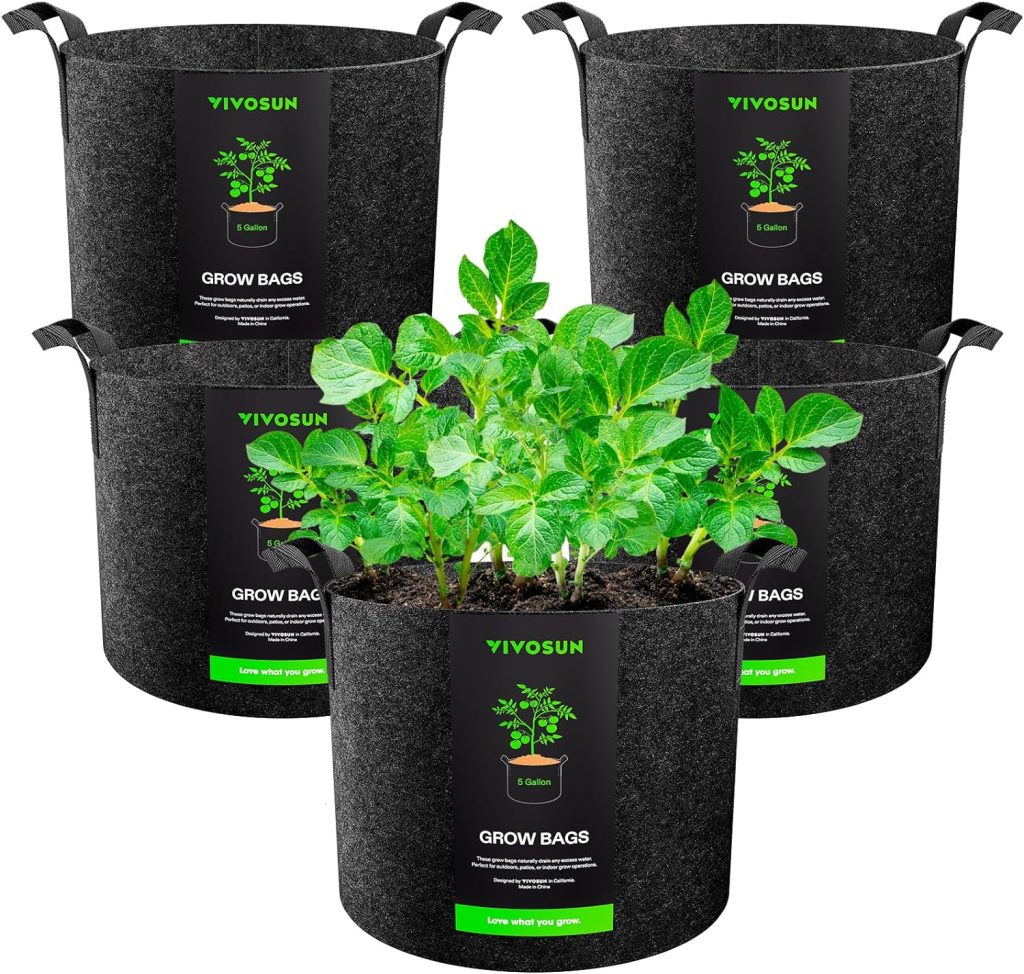Container Gardening
Container gardening is a versatile and accessible method of cultivating plants, perfect for those with limited outdoor space, as well as those wish to add greenery to their living areas. It’s a practice that opens up gardening possibilities to urban dwellers, apartment residents, and anyone looking to beautify their surroundings with plants.
Whether you have a balcony, a small patio, or even just a sunny windowsill, container gardening offers an opportunity to nurture a variety of plants in containers, from flowers and herbs to vegetables and small trees.
Getting Started with Container Gardening
- Choose the Right Containers: Opt for containers that are suitable for the size and type of plants you intend to grow. Consider factors like material (plastic, ceramic, terracotta, etc.), drainage holes, and size. Ensure the containers provide enough space for the roots to grow and have proper drainage to prevent waterlogging.
- Select the Ideal Location: Assess the conditions in your garden and place your containers in spots with enough sunlight. If sunlight is limited, consider selecting plants that thrive in shade or partial shade.
- Pick the Right Plants: Choose plants that are well-suited to container gardening and compatible with your available space and climate. Herbs (basil and rosemary) vegetables (tomatoes and peppers) and flowers (petunias and geraniums) are popular choices for container gardening.
- Prepare the Soil: Use a high-quality potting mix that provides good drainage and aeration for your plants. Avoid using garden soil, as it can become compacted in containers and may contain pests or diseases. Consider adding organic matter like compost or perlite to improve soil structure and fertility.
- Water Regularly: Container plants often require more frequent watering than plants grown in the ground, as containers can dry out quickly, especially in hot weather. Check the soil moisture regularly and water when the top inch of soil feels dry to the touch. Avoid overwatering, as it can lead to root rot and other issues.
- Fertilize as Needed: Supplement your container plants with fertilizer to provide essential nutrients for healthy growth. Choose a balanced fertilizer or one formulated specifically for the types of plants you are growing.
Advanced Container Gardening Tips
- Consider Companion Planting: Planting compatible species together in the same container can provide benefits such as improved pollination. Research companion planting combinations to maximize the health and productivity of your container garden.
- Prune and Deadhead Regularly: Keep your container plants looking tidy and encourage new growth by pruning back dead or damaged foliage and flowers. Deadheading, or removing spent blooms, can promote continuous flowering and prevent the plant from expending energy on seed production.
- Monitor for Pests and Diseases: Keep an eye out for common pests like aphids, spider mites, and whiteflies, as well as signs of diseases such as powdery mildew or leaf spot. Address any issues promptly with organic pest control methods or fungicides to prevent them from spreading to other plants.
- Rotate Plants Seasonally: Rotate your container plants seasonally to ensure they receive optimal sunlight and air circulation throughout the year. Consider swapping out cool-season crops for warm-season crops as temperatures change. Additionally, refresh the soil with compost or new potting mix annually.
- Protect Plants from Extreme Conditions: Shield your container plants from extreme weather conditions like frost, heatwaves, or strong winds. Move them to a sheltered location or provide temporary protection with row covers, shade cloth, or plant covers.
Container gardening offers endless opportunities for creativity and experimentation, allowing you to customize your garden to suit your space, preferences, and lifestyle. With proper care and attention, you can enjoy the beauty and bounty of a thriving container garden year-round.

